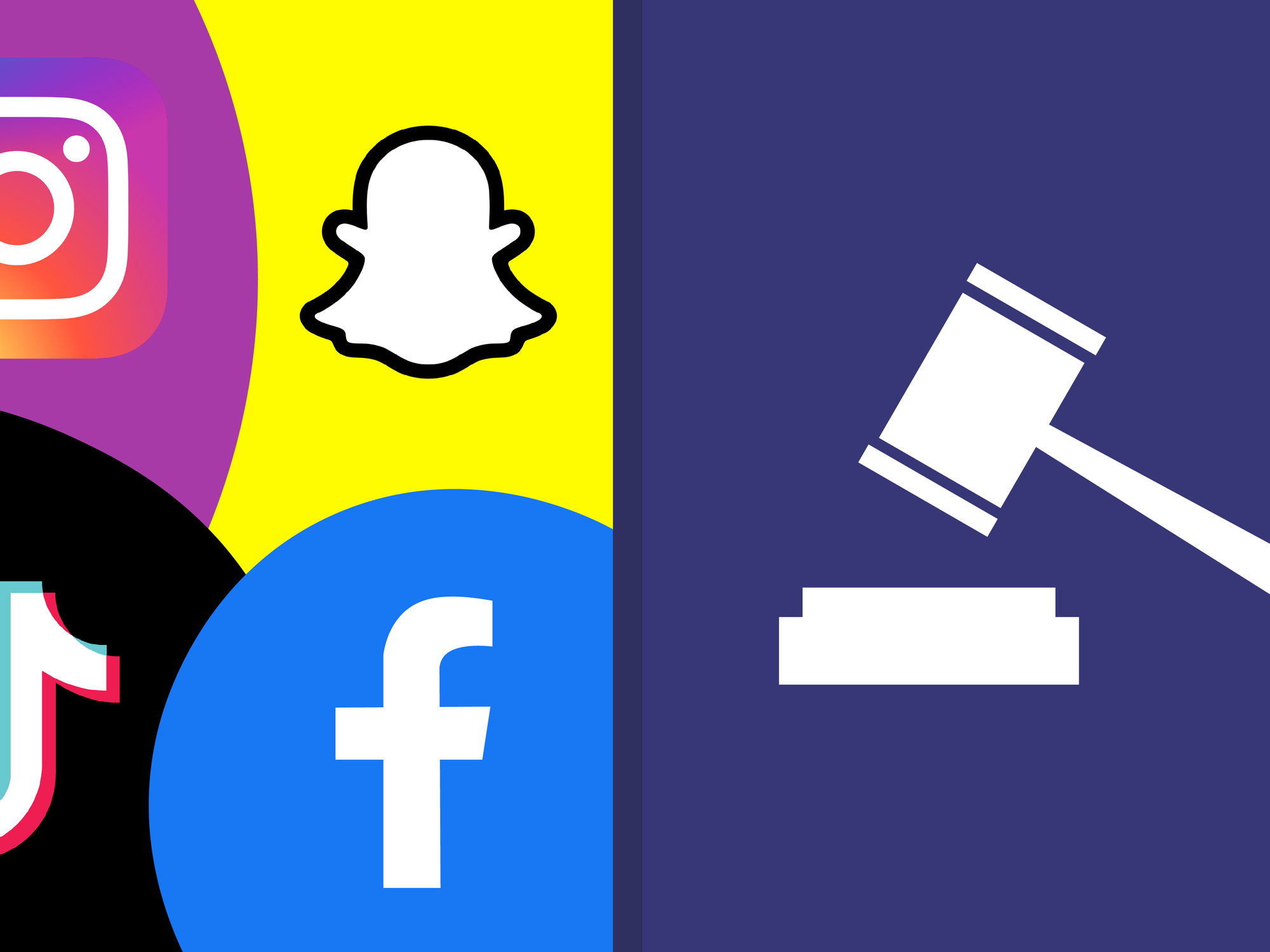Why Schools Across the Country Are Suing Social Media Companies
Kristin Snyder is dot.LA's 2022/23 Editorial Fellow. She previously interned with Tiger Oak Media and led the arts section for UCLA's Daily Bruin.

Last year, a Pew Research survey found that nearly half of US teens said they are online “almost constantly.” Many point to this reality as a major contributing factor in the youth mental health crisis, with studies linking social media use with depression and anxiety.
The consequences of the teen mental health crisis could not be more dire. According to one 10-year study at BYU, teenage girls at age who spent two to three hours daily on social media were at a higher risk for suicide as young adults.
To combat these issues, some schools have banned cell phones and hired more mental health counselors. But now they’re attacking what they believe to be the root cause: social media companies.
Earlier this month, the San Mateo County Board of Education and the San Mateo County Superintendent of Schools filed a lawsuit against the Los Angeles-based Snap and TikTok as well as YouTube and Meta. The case alleges that the companies are responsible for creating a “public nuisance” by interfering with the health and safety of students. They are seeking monetary damages for the financial impact on schools, many of which are hiring more mental health professionals to try and combat this issue. The lawsuit would also require social media companies to provide safeguards to protect users. The lawsuit points to specific practices each company takes to keep children on their apps, such as notifications for new posts and auto-playing videos.
Patricia Love, the Executive Director of Strategy and Communications for the Office of Education, says the lawsuit was filed due to the increasing negative effects that educators and parents are seeing in young students.
“It's hard not to talk to a parent of kids who are in middle school or high school who don't have examples of how this has impacted their kids,” Love says.
While the pandemic has certainly presented challenges for schools, Love says social media has exacerbated these issues. Students are distracted in class, losing sleep and seeing increased mental health struggles. Online trends have also led to the destruction of school property.
Karin Swope, one of the lawyers who filed the suit on behalf of the school board, says social media companies have little to no safeguards to protect their young users.
“The platforms were designed to be addictive,” Swope says. “There needs to be some oversight.”
Other school districts across the country have filed similar lawsuits. Earlier this month, a Kentucky school board sued YouTube, TikTok, Snapchat, Instagram and Facebook over their addictive properties. A Pennsylvania school district recently filed a similar lawsuit.
In January, Seattle’s public school system filed a lawsuit against those same companies with a similar claim, adding that the mental health crisis caused by social media addiction does not allow schools “to fulfill its educational mission.”
Jolina Cuaresma, senior policy counsel at Common Sense Media, a nonprofit centered on children and technology, says these lawsuits are increasing because more parents and students are seeing how deeply embedded social media is in young people’s lives.
“Parents and schools and teachers, I just think they're tired of waiting for Congress to do something or their states to do something about it,” Cuaresma says.
But this is also gaining more attention at the state level. Cuaresma says California has largely led the way with bills like the California Consumer Privacy Act and the California Privacy Rights Act, both of which try to address data collection. In September, California also passed the California Age-Appropriate Design Code Act in order to try and prevent social media platforms from having addictive qualities.
Other states are following California’s lead. Last week, Utah passed two bills addressing teen social media use. The laws prevent people under the age of 18 from using social media from 10:30 p.m. and 6:30 a.m., require parental consent to create accounts, reinforce age verifications and restrict addictive features on apps.
But, as Cuaresma noted, litigation takes time. Meanwhile, Love says schools within the district are taking different measures to try and assist students. Some have implemented phone bans. Many have hired additional mental health professionals and facilitated training sessions with families and students about limiting social media use. But Love adds that these efforts are “another resource that is not going to classroom instruction.”
- How the 'Thrift Haul' Boosted Secondhand Ecommerce Platforms ›
- The Struggle to Create Safe Social Spaces For Young Users ›
- Auto troll: TikTok Responds to Media Addiction Concerns with Auto Scroll Feature ›
- Trust Paradox: How Expert Influencers Risk Losing Followers - dot.LA ›
- Parents Protest Snapchat as Direct Correlation to Suicide - dot.LA ›
- BMOXI App Aims to Prevent Mental Health Issues in Teen Girls - dot.LA ›
Kristin Snyder is dot.LA's 2022/23 Editorial Fellow. She previously interned with Tiger Oak Media and led the arts section for UCLA's Daily Bruin.



 Image Source: Revel
Image Source: Revel
